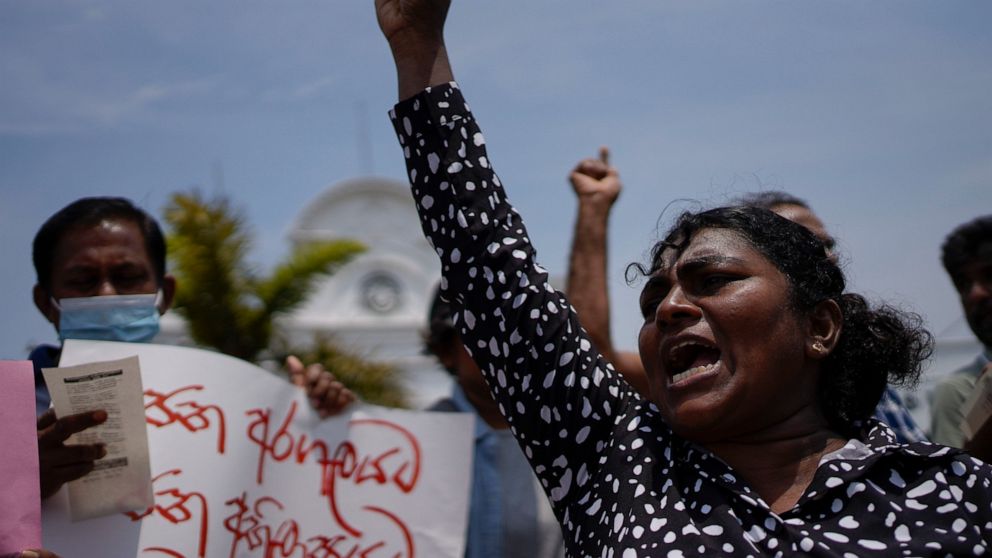Sri Lanka’s Parliament approves state of emergency
Parliament #Parliament

Sri Lanka’s Parliament has approved a state of emergency that had been declared by President Ranil Wickremesinghe as his government cracks down on demonstrators it accuses of violence
ByKRISHAN FRANCIS Associated Press
July 27, 2022, 10:14 AM

An anti government protester shouts slogans against the recent military eviction of their protest camp outside president’s office in Colombo, Sri Lanka, Wednesday, July 27, 2022. Sri Lanka’s economic crisis has left the nation’s 22 million people struggling with shortages of essentials, including medicine, fuel and food. (AP Photo/Eranga Jayawardena)
The Associated Press
COLOMBO, Sri Lanka — Sri Lanka’s Parliament on Wednesday approved a state of emergency that had been declared by President Ranil Wickremesinghe as his government cracks down on demonstrators it accuses of violence while trying to find a way out of the country’s worst economic crisis.
The vote passed 120-63 in the 225-member Parliament. The other lawmakers abstained. The decree, which gives the president the power to make regulations in the interest of public security and order, has to be approved every month.
Wickremesinghe declared a state of emergency last week as acting president before lawmakers elected him to serve the remainder of Gotabaya Rajapaksa’s five-year term until 2024. Rajapaksa fled Sri Lanka after thousands of protesters stormed the president’s official residence and other buildings. He later resigned from Singapore.
Ruling party members who back Wickremesinghe said that while protests were reasonable at the beginning of the crisis, groups that don’t believe in parliamentary democracy and want to capture power through unconstitutional means had infiltrated the demonstrators and were creating disturbances.
Opposition parties criticized the emergency as a government move to stifle dissent.
Within a day of Wickremesinghe’ s election, the military raided and dismantled the camps the protesters had set up for more than 100 days opposite the president’s office. Some protesters were beaten up.
Courts issued travel bans against six protest leaders and some were arrested.
On Tuesday, police arrested a man accused of entering the state television station during massive rallies on July 9, ordering employees to air programs supporting the protests and causing a brief disruption in transmission. He was pulled out of a plane while trying to leave for Dubai.
Four other protesters were arrested for trespassing the area of a former prime minister’s statue after police had secured a court order prohibiting people from entering the area, fearing the monument may be damaged.
Sri Lankans have been protesting for months demanding Rajapaksa’s resignation and holding him and his powerful family members responsible for the country’s economic crisis. Some also oppose Wickremesinghe’s election, saying he is too close to Rajapaksa.
Protests have almost dismantled Rajapaksa domination with all six family members who held top government positions since 2019 having been forced to resign.
Sri Lanka is bankrupt and has suspended repayment on its $51 billion foreign loans, of which $28 billion must be paid by 2027. The crisis has led to severe shortages of fuel, cooking gas and medicine and long lines for essential supplies.
The government is in the process of preparing a debt restructuring plan, a condition for an agreement with the International Monetary Fund for a bailout plan.